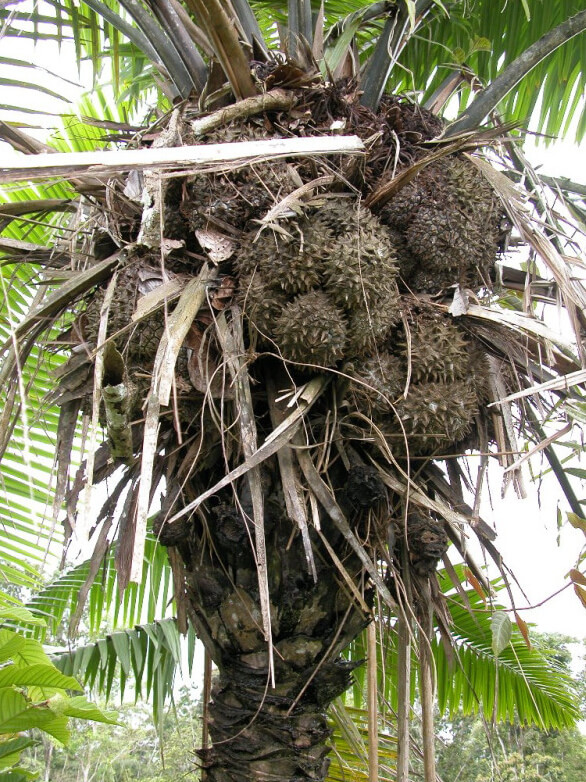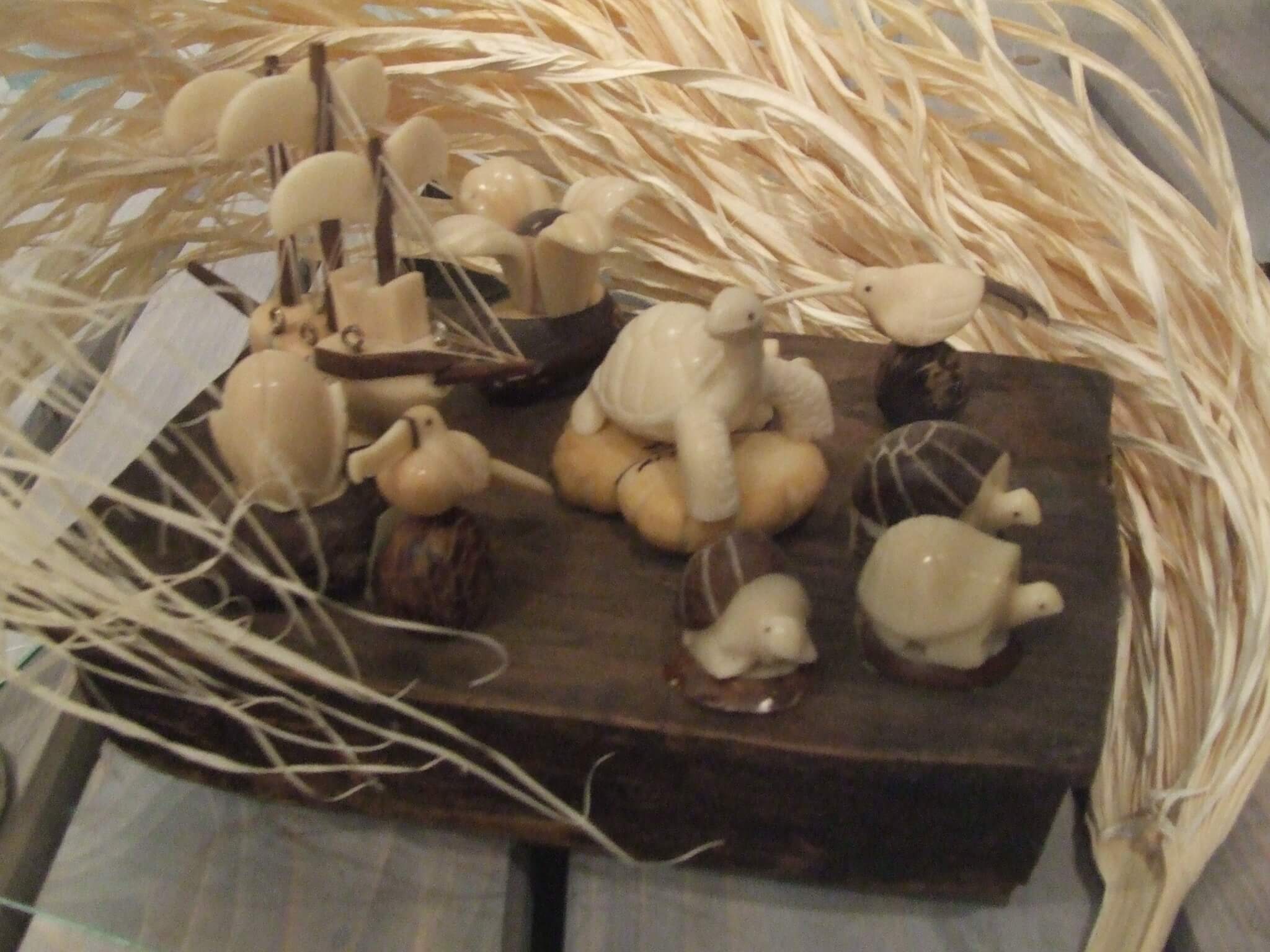Menu
Tagua, an alternative to save the world
The world is reaching a point where it is already impossible to deny that our planet is wounded. We are destroying our environment and depleting our natural resources at an alarming rate, which compromises our very existence as a species, and that of countless other species.
But nature is wise and generous with those who know how to hear it. We can find in nature itself alternatives to supply the same needs that we now satisfy by destroying our environment. One of these amazing alternatives is a plant called Tagua.
This plant, also known as ivory nut or vegetable ivory, is the seed of the Phytelephas Macrocarpa palm, which grows in the tropical rainforests of the Pacific region, especially in Panama, Colombia and Ecuador.
Tagua has many commercial applications that could preserve other natural resources, especially in the textile industry. In addition, the preservation of Tagua is important for the conservation of the natural environments where it is found. In the following video, you can learn more about this topic. We’ve added a transcript of the video in both English and Spanish to make it easier to understand.
Tagua, una alternativa para salvar el mundo from trafino on Vimeo.
Video transcription in English
Tagua: your alternative to save the world
Yolanda Kakabadse: it is a plant, one that may disappear if we don’t take care of it.
Francisco Luna: The Tagua palm tree cannot be planted, a way to plant it has not been discovered, this palm grows wild in Ecuador’s rainforest.
Yolanda Kakabadse: The forests could be destroyed within days, weeks.
Francisco Luna: Deforestation is growing at a rapid place.
Francisco Luna: If forest dwellers cannot live on what the forest produces, they will destroy trees and palm trees.
Isidro Santos: The forests are disappearing and we, as keepers, are truly worried.
Tagua palm: the alternative
Francisco Luna: Once the coconut-like Tauga seed matures it falls naturally from the Palm tree, the animals of the forest eat the shell of the seed, the locals collect and obtain an income from selling the seeds. This allows them to live from what the forest produces and they, in return, protect, take care and preserve the forest.
Francisco Luna: The Tagua seed is the raw material for the production of the Tagua buttons used in clothing manufacturing.
Francisco Luna: The Tagua handcrafts that replace those made of ivory.
Francisco Luna: The Tagua powder is used by the cosmetic industry as exfoliant in replacement of plastic microbeads.
Francisco Luna: The Tagua buttons compete with those made of polyester, polyester is a non-biodegradable product, polyester buttons pollute the enviroment.
Tagua handcraft
Francisco Luna: The Tagua seed has a huge social value because it creates thousands of jobs.
Man: It is vegetable ivory and it is a wild seed.
Yolanda Kakabadse: The Tagua palm tree grows wild in the rainforest, it is our responsibility to protect it.
Francisco Luna: Every time you wear a garment with Tagua buttons you are saving a tree, you are doing your part of conservation, defending the world and combating climate change
Use Tagua buttons to save tropical rain forest!
See transcription in Spanish
Tagua: tu alternativa para salvar el mundo
Yolanda Kakabadse: Hay una planta importante que, si no la cuidamos, puede desaparecer.
Francisco Luna: La palma de Tagua no se la siembra, no se ha encontrado forma de separarla, nace en medio del ecosistema de la selva.
Yolanda Kakabadse: Un bosque se puede destruir en días, en semanas.
Francisco Luna: La deforestación avanza a grandes trancos.
Francisco Luna: El habitante del bosque si no puede vivir de lo que el bosque produce, destruye los árboles y las palmeras.
Isidro Santos: El bosque va menorando, entonces nosotros como guardaparques estamos preocupados.
Palmera de Tagua: la alternativa
Francisco Luna: Una vez que madura la pepa de Tagua como un coco, cae de la palmera. Los animales del bosque comen el caparazón de la pepa, el habitante del bosque la recoge. Del producto de la venta vive el habitante del bosque permitiéndole que, al vivir de lo que el bosque produce, lo conserva, lo mantenga y no lo destruya.
Francisco Luna: Con la semilla de Tagua se fabrica el botón de Tagua que se usa para la fabricación de ropa.
Francisco Luna: Las artesanias de Tagua, que reemplazan a las artesanías tradicionales chinas hechas con marfil animal.
Francisco Luna: El polvillo de la Tagua se usa como exfoliante para los productos de belleza.
Francisco Luna: La Tagua compite con el plástico, el poliéster de un producto no biodegradable, el boton de poliester llena de basura el mundo.
Francisco Luna: La semilla de la Tagua tiene un valor social muy alto porque crea miles de puestos de trabajo.
Hombre: Es vegetal, es marfil y es silvestre.
Yolanda Kakabadse: No está en todo el mundo la Tagua, tenemos una responsabilidad importante con el resto del planeta.
Francisco Luna: Al comprar un botón de Tagua, estás salvando la vida a un árbol, estás poniendo tu granito de arena para la conservación del bosque húmedo tropical, para defender el mundo evitando el calentamiento global.
Usa botones de Tagua para salvar el bosque húmedo tropical
Hide transcription in Spanish
Participate in our ecological volunteer programs.
Archives
- April 2020
- March 2020
- February 2020
- January 2020
- December 2019
- November 2019
- October 2019
- September 2019
- August 2019
- July 2019
- June 2019
- May 2019
- April 2019
- March 2019
- February 2019
- January 2019
- December 2018
- November 2018
- October 2018
- September 2018
- August 2018
- May 2018
- March 2018
- November 2017
- October 2017
- September 2017
- August 2017
- July 2017
- June 2017
- May 2017
- April 2017
- March 2017
- June 2004






